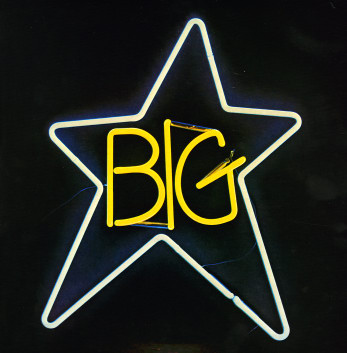
1. A slightly truncated weekender for a slightly truncated week. First off, The Guardian’s newfound boldness paid off–in spades!–in the non-Snowden-related form of Giles Fraser’s “Our Fear of Boredom Is Simply a Fear of Coming Face to Face With Ourselves”. As the title indicates, it’s a terrifically wise take on what’s really going on in our culture of distraction, worth reprinting in full here if that were conscionable. Fraser takes “The Busy Trap” one unfashionable step further by hinting at the unique and hopeful role that liturgical churches might play, unwittingly or not, in both form and content, ht RW:
“We now live in a culture that is pathologically fearful of being bored. Indeed, I think the church has been heroically counter-cultural in its defense of that little bit of the week that one can reasonably expect to be just a little bit dull, where our seemingly insatiable desire to be endlessly absorbed by some diverting intervention is challenged.
We are often made to feel guilty about being bored – “only the boring person gets bored” – as if there were some deep moral fault in it: that being bored makes you somehow insignificant. But the Sunday morning hour, not unlike the therapeutic hour, is a place to contemplate our capacity to deal with the fear of emptiness, of our own abandonment. And the answer to that fear is not ever-more distraction. Indeed, the interesting thing here is the panic that boredom seems to evoke in some people, as if their lives require the intervention of continual entertainment in order to be meaningful…
Throughout the centuries, theologians, especially those of the mystical tradition, have insisted that God is commonly experienced as a form of absence. Deus absconditus, as Luther described Him. Yet such is our anxiety when presented with empty space that we feel the need to fill it up – every absence being continually and desperately converted into some sort of presence. But many of these substitutions are just ways of us avoiding ourselves, our fear of dependency and the fear of abandonment that such dependency brings with it.
Christianity, as I see it, is training in dependency. We are to wait upon God. The healing initiative comes from without. The technical term is grace, and it falls on us like rain, unbidden and unbiddable. For those for whom theology is intellectual child’s play (which, in a certain important sense, I think it is), the same could be said about our dependency upon other people. I am lost without those who love me. And waiting for their love to appear, waiting too long for a text or phone call, can invite a certain sort of terror that I am abandoned and unwanted. We perfectly understand why Lear asks his daughters if they love him. We all want to be told this. But it’s also a manipulation, eliciting platitudinous and self-serving exhortations from his eldest daughters and “nothing” from the one who loves him most. Cordelia’s love, like God’s grace, cannot be bought or trapped.
And the video he mentions at the beginning is pretty amusing (and oh-so-English):
2. Have you heard about Hikikomori?! According to the BBC, a form of extreme and sometimes violent withdrawal has risen dramatically among young Japanese men over the past five years, amounting to what sounds like a serious crisis in wider Japanese society. Apparently traditional success-related pressures on (male) children and their parents are meeting with emerging individualism and new economic realities to form an awful double-bind of fear and reculsiveness (and, as one can only imagine, crippling depression). One of the principal factors being cited in the phenomenon is curiously close to what we might call “little ‘l’ law”, and the paralysis it often invites, ht MC:
One such force is sekentei, a person’s reputation in the community and the pressure he or she feels to impress others. The longer hikikomori remain apart from society, the more aware they become of their social failure. They lose whatever self-esteem and confidence they had and the prospect of leaving home becomes ever more terrifying. Parents are also conscious of their social standing and frequently wait for months before seeking professional help…
A common reaction is for parents to treat their recalcitrant son with anger, to lecture them and make them feel guilty for bringing shame on the family. The risk here is that communication with parents may break down altogether. But some parents have been driven to extreme measures. For a time one company operating in Nagoya could be hired by parents to burst into their children’s rooms, give them a big dressing down, and forcibly drag them away to a dormitory to learn the error of their ways. Kazuhiko Saito, the director of the psychiatry department at Kohnodai Hospital in Chiba, says that sudden interventions – even by healthcare professionals – can prove disastrous.
3. A brave and dare I say repentant meditation on the Paula Deen affair from Joshua David Stein in the New York Observer exposes the thin line between recompense and vengeance. As the good Rev. Schneider reminded us, it is remarkable (and more than a little discouraging) how quickly hate can beget hate, i.e. how a wrongful act can turn into an occasion for merciless and sanctimonious blood-lust. Columns like Stein’s, on the other hand, shine a generous light, do they not? ht KW:
There’s a cognitive dissonance between knowing the sinner has sinned and in seeing a sinner, stripped bare and vulnerable, being punished. The desire for justice, itself a form of good, can so easily be replaced by a desire for vengeance, which is not so great. Because I love me a good war analogy, it’s why it is not a murder to kill a soldier on the field but it is to kill him once he is a prisoner of war. Somewhere, between the revelation that she is an incorrigible racist and the Bruni pile-on and my own insignificant comments and the corporate betrayals, Ms. Deen became helpless. And in that moment, the righteous cry for her blood became good old bullying.
And this compassion, remorse and warmth that I—and thousand of others, I’m sure—feel is both a good and a bad thing. It’s good for us to feel compassion, to see basic human goodness. But in another way, it’s the last farcical act of Paula Deen’s tragedy. Instead of acting with moderation, somberly stripping Ms. Deen of her power, wealth and influence, laying bare the banality of her evil with little pomp, we—me, you and everyone we know—have howled ourselves into a meanie frenzy. We’ve turned Ms. Deen… into a victim. Surely Ms. Deen has done wrong but now we’ve done wrong too. I want to feel nothing but contempt and disdain for Paula Deen, on the occasion of her comeuppance. But all I feel is a little bit sad, a little bit tender and ashamed.
4. A rather fitting follow-up to our dueling pieces on doubt last week is Lesley Hazleton’s surprising TED talk on “The Doubt Essential to Faith”, especially as it relates to Islam and the life of Mohammed. A tad fuzzy when it comes to distinguishing between world religions, to be sure, but the distinction between faith and fanaticism is nonetheless a helpful one. And while the chief observation may strike most Mbird readers as a tad obvious, it also speaks to just how overbearing the fanaticism she describes has become that something like this would be regarded as groundbreaking or urgent. Of course, just because real faith includes doubt does not mean they are synonymous. Still, ht MS:
5. Humor-wise, in what may be one of its most uncomfortably perceptive headlines in some time, The Onion reported that “79% Of Sincere Thoughts Played Off As Jokes”. And I thought this was a joke, but I was wrong, ht MS.
6. The Economist reports that our greeting cards are becoming a bit less flaky when it comes to death and terminal illness. Or, you might say, flaky in a whole new way, ht CB.
7. In film, I finally caught Upstream Color this week, and Good Lord. As has been noted elsewhere–and viewers of Primer already know–it is not a film that can be easily described or dissected (just try!). Writer/director/auteur-times-ten Shane Carruth has gone on record saying the film is about identity, specifically how people build it back up when everything they know is stripped away–about whether we control our identity or whether it controls us. I wouldn’t disagree. In fact, however creepily it may do so, the film poses some profoundly religious questions (and more than flirts with sympathetic conclusions). Certainly one worth watching for yourself. Next, click here for another take on Monsters University that piqued my interest, and lastly, the trailer for the new Woody Allen looks very promising, a relief after the forgettable and borderline annoying To Rome With Love:
8. Finally, in music, the long-awaited Big Star documentary hit theaters and some on-demand services this week, and in honor of the occasion, might I direct you to John Jeremiah Sullivan’s fantastic piece (irritatingly so!) on co-founder Chris Bell from a couple of years’ ago in the Oxford American. And here I thought I was the only one talking about the abundant Christianity in that band’s music…:
“We have it from David Bell that his brother had, in fact, tried suicide. In the throes of whatever drove him to it, he found Jesus and became a devout Christian, further complicating the psychological picture of his post-Big Star years. In “Better Save Yourself,” he goes on to sing “You shoulda gave your love to Jesus/Couldn’t do you no harm.” The past tense there is creepy. The righteous blues were about exhorting the listener (maybe the singer too) to get right with God, but it’s too late for whomever Bell’s talking to. “Shoulda Saved Yourself” would have been a more accurate title.”
Bonus Track: Like you, I have yet to catch an episode either (yet!), but this is a lot more sincere and affecting than I was expecting, ht BP:
http://www.youtube.com/watch?feature=player_embedded&v=7KwrmlTPI8w&w=600

COMMENTS
2 responses to “Another Week Ends: Liturgical Boredom, Hikikomori, Paul Deen, Doubtful Faith, Upstream Color, and Big Star”
Leave a Reply














My review of Duck Dynasty and Phil Robertson’s autobiography for the Los Angeles Review of Books: http://lareviewofbooks.org/article.php?type=&id=1792&fulltext=1&media=#article-text-cutpoint
And I devote a section to the family’s religion.